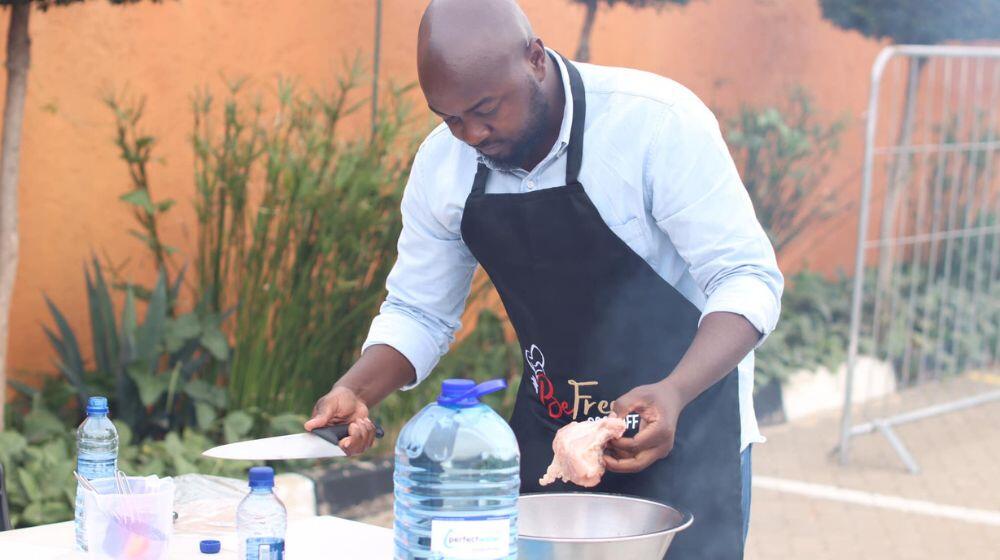WINDHOEK, Namibia – “When I report the abuse at the police, the officers laugh at me and do not take me seriously.”
“She mostly insults me especially when she gets paid because I do not have money and it is supposed to be my responsibility to feed the family.”
These are some of the voices of male victims of gender-based violence in Namibia.
Taken from a research study conducted in northern Namibia, these words reflect the shame, humiliation and stigma that characterise our society’s inability to protect male victims and survivors of abuse.
According to Namibian police data, over 5 427 GBV-related cases were reported in the 2019/20 financial year. It is a known fact that women disproportionately experience gender-based violence and other forms of abuse, however meaningfully addressing the root causes of GBV includes working with men and boys promote gender equality and foster a culture of respect and non-violence.
With this in mind, the #BeFree Movement, supported by the Japanese Government and UNFPA, organised the #BeFree Cook-Off on 21 April 2023 as part of the Leaving No One Behind project.
Otherwise known as the #BeFree Potjie Competition, the event sought to empower boys and young men by challenging harmful gender stereotypes by teaching them how to cook, promoting and role-modelling positive gender values and actions against violence as well as discussing important issues affecting them in society.
Under the guidance of professional Chef Phillip, about 100 male participants learned how to cook a chicken potjie – disrupting ‘traditional’ beliefs that cooking is a women’s job.
Globally, women perform three to ten times as much unpaid care and domestic work as men according to the International Labour Organisation (ILO).The #BeFree Cook-Off brought to light how cooking should not be confined by gender norms but rather embraced as an indispensable life skill for all. To drive this point home, one attendee at the #BeFree Cook-Off encouraged his fellow participants not to rely on their sisters or mothers to cook for them and emphasised that men are capable of preparing their own meals.
Building healthy masculinities
Harmful social norms and gender norms such as men’s authority to discipline women and children, men’s lack of emotion or women’s sexual purity dehumanise both men and women through sustaining and justifying GBV.
"There are certain things that we can hold dear that culture taught us, but those things should not be demeaning of the existence of anyone that you are around”, said one #BeFree Cook-Off participant.
Speakers at the #BeFree Cook-Off demystified preconceived notions surrounding masculinity and created an open safe space for dialogue and reflection among men.
During one of the most impactful discussions of the day, an inmate from the Namibian Correctional Services implored men to take responsibility for their actions and actively work towards addressing GBV. “Men should initiate their own GBV prevention awareness campaigns. We must recognise that the responsibility for tackling these issues lies with us”.
He stressed the importance of open communication and encouraged men to confide in someone they trust when facing challenges.
Psychologist Edwina Mensah Husslemann further expanded on the need for men to communicate, explaining how “although some men may want to talk about issues that bother them, they prefer to do so with other men.”
“Men must take up more responsibility in acquiring soft skills and making themselves available to other men as psychologists and other such psycho-social support professionals”, she added.
Throughout the event, young men and boys joined forced among each other to speak on subjects that they may have previously shied away from speaking on in public. Providing such spaces for men to express themselves in a vulnerable manner can only continue to foster a society that values and uplifts individuals of all genders, promoting a culture of respect, understanding, and equality.
Male engagement is a key component of the Leaving No One Behind Project in Namibia. Funded by the Japanese Government, the project's primary goals are to restore dignity, reshape the future, and address GBV and negative sexual and reproductive health outcomes for women, girls, men, and boys in Namibia.


